Disclosure: Meeple Mountain received a free copy of this product in exchange for an honest, unbiased review. This review is not intended to be an endorsement.
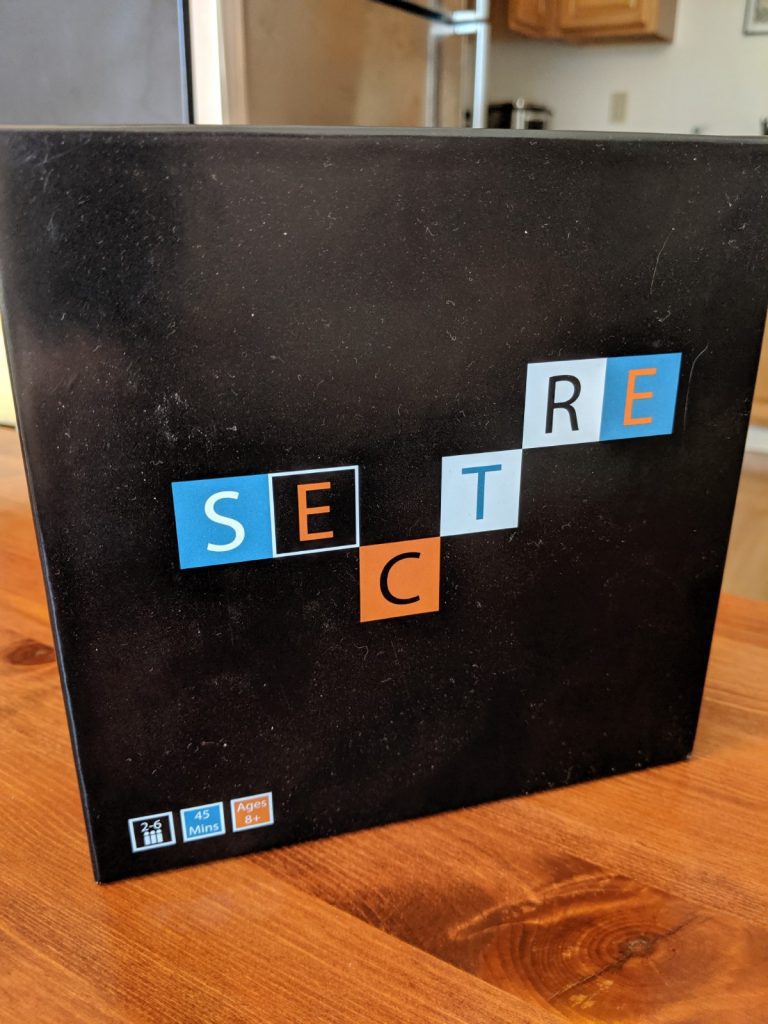
Nobody likes to look dumb. This is the primary reason I don’t play abstract games. They make me look dumb.
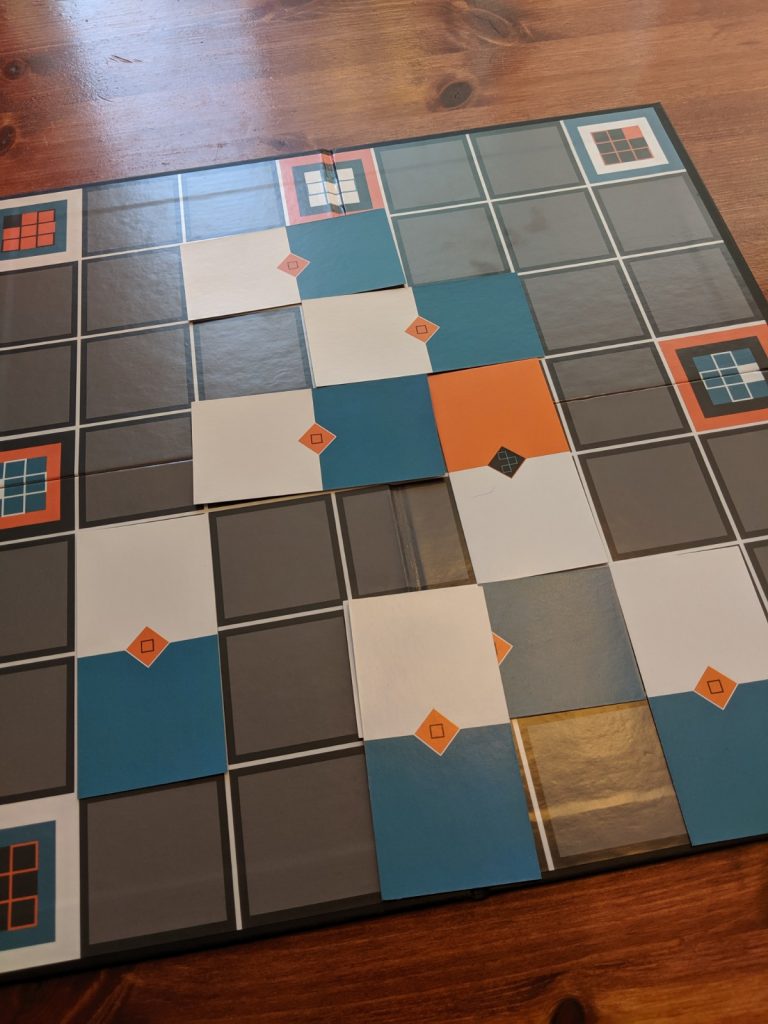
My personal insecurities aside, SECTRE is an interesting abstract game that exemplifies why I don’t lean too heavily into this genre of game. That said, if you’re the type of person who likes puzzles that have John Nash levels of difficulty, this is the game for you. I believe that we should have many different options available to us as games, and abstracts are often maligned. SECTRE definitely makes an argument for its place within the cornucopia of possible gaming choices.
What is SECTRE?
SECTRE is an abstract game, meaning that it doesn’t have any theme other than a CMYK color palette and a cool name. Abstract games are often defined by a particular set of rules:
- Perfect information: meaning there is nothing hidden from players other than what their opponent might do.
- Simple and straightforward rules.
- No luck, chance, or randomness.
SECTRE has all of these. You have a 7×7 square grid, and everyone (the game can accommodate 2-6 players) gets a stack of double-sided cards that have a combination of the four game colors on them. Everyone also gets a 10 point card, which I’ll explain in a minute.
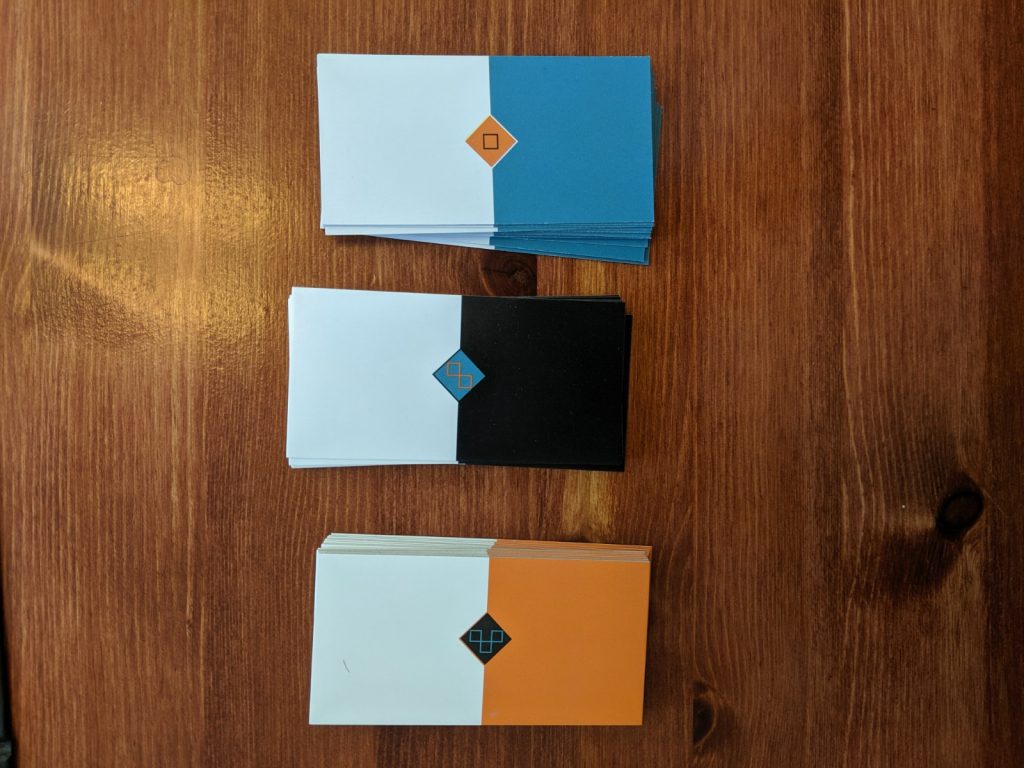
On your turn, you place a card on the board. The first turn, you can’t cover anyone else’s cards, but after that, you can place cards anywhere you want, including completely covering other players’ cards. The only caveat is that you can never have the same color square orthogonally adjacent to another square of the same color.
There’s a spread of cards that give points to players for forming connected groups of a single color. Some are pattern based, while 3 give you 5, 10, and 15 points for connecting that many colored squares. You can also form multiple patterns at once, which can result in some cool combos where you get a bunch of points. You get your points after you complete a given card at the end of your turn.
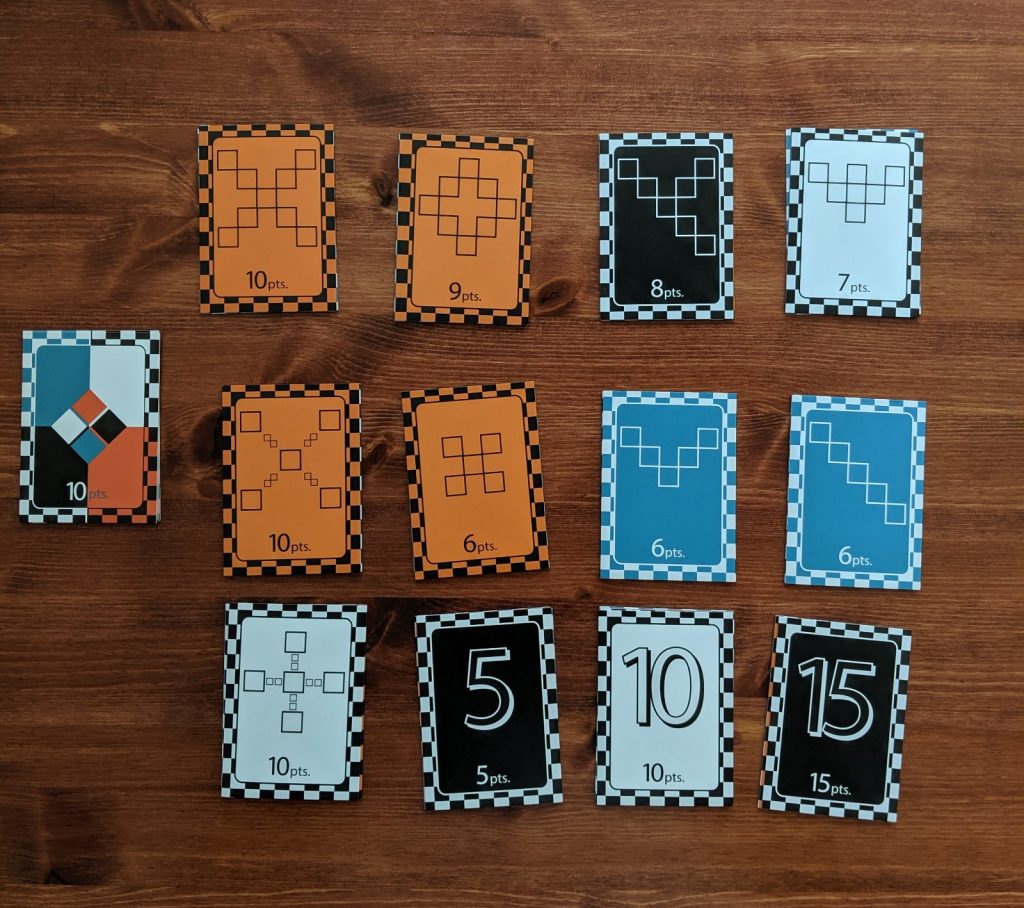
And that’s it. You play until everyone runs out of cards. You can also use your 10 point card that you start with to take two turns in a row for maximum combo-ing. But, if you keep it till the end, you get an additional 10 points. At the end of the game, most points wins.
Determinism and decision spaces
Let’s talk about decision spaces and determinism. When people say a game is random, what do they mean? Well, quite simply, randomness means that an action can have multiple results. When you roll a six-sided dice, the numbers between 1 and 6 can appear. When we say that actions are determined in games, it means that a single choice will have a single result. When you move a pawn one space forward in chess, that is the only thing that can happen.
Now, the game state that emerges from that single move creates what’s known as a decision space. Chess and Go, perhaps the ultimate abstracts, have large decision spaces. Because moves only have a single result, the player who is better able to calculate all of the results will have an advantage in the game.
SECTRE has a MASSIVE decision space. I found it shared this quality with other well-known abstracts like YINSH and DVONN, though it doesn’t have the same tactility as those games do. The actions are determined, but due to the size of the board and the four available colors, each placement of a card can generate huge swings in the game state.
If you’re into parsing massive decision spaces, you’ll love SECTRE.
Final thoughts and a small critique
Overall, I’d recommend SECTRE to just about anyone who has an interest in abstracts. I think many of the difficulties I’ve experienced with the game can be countered the “get good” argument (the reason I’m bad at this game is because I haven’t taken the time to get good at it). That being said, being good at this game will require a significant amount of time investment.
Now, there is one other thing. SECTRE does have a large amount of bookkeeping for an abstract, more than many other games like it. Because you can often qualify for several spots at once, and due to the large color patterns that appear on the board, many times in my playthroughs players missed scoring opportunities that they had already achieved because they got a little overwhelmed by the board. We’d stop the game frequently to be like: “Wait! You scored this last round.”
I don’t think that should deter anyone from buying the game; that was just an experience I had with it. Freshwater Game Company is a small, interesting company that’s committed to putting out small, sustainable games. I think they should be lauded for this!
If you’re the type of person who wants to get in on some brain-burning color coding action, I’d recommend this to you. Plus, it comes with a whole bunch of expansions, so if you get bored with the base game, you can try these out (though I did not for this review).
Note: I received a copy of this game to review.


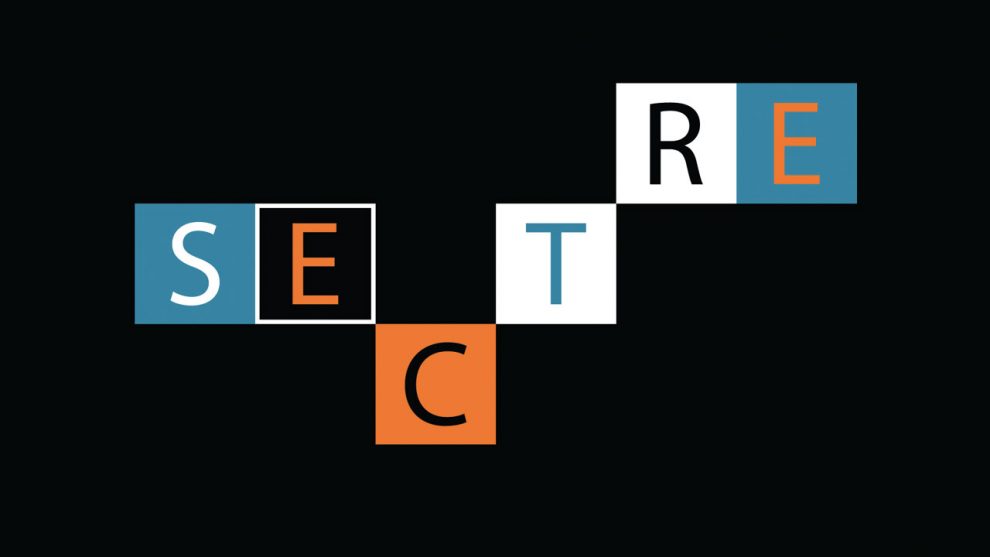
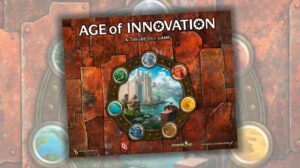







Add Comment